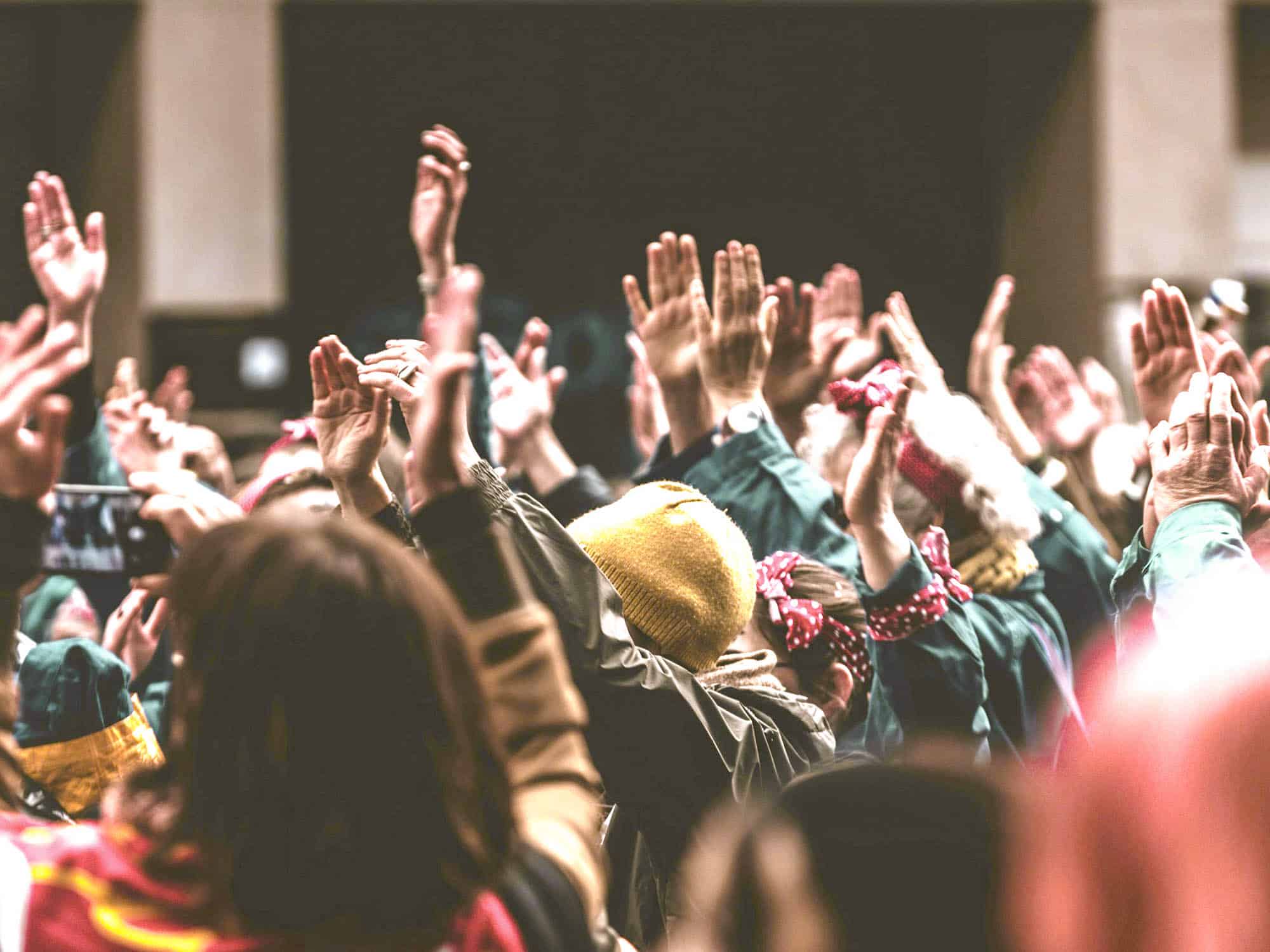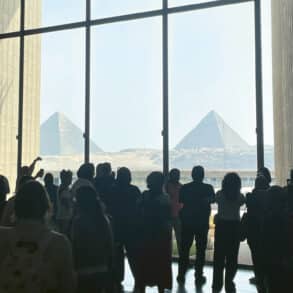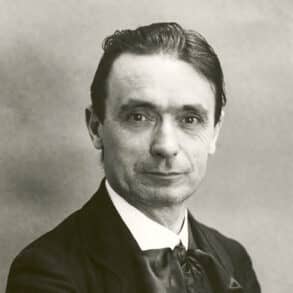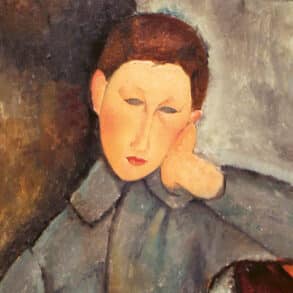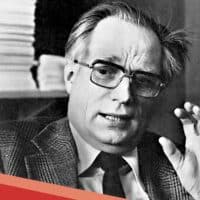In recent times, anthroposophy has often been suspected of having anti-democratic overtones. Yet, the essential gestures of democracy and anthroposophy have much in common. It’s worth comparing the form of government and the world view.
Recently, the journalist Jens Jessen put forward the theory that the current “concern about democracy” expresses “above all an increasing hostility of voters towards each other. They do not doubt the functioning of democracy, but rather despair at the voting behaviour of others. They confuse the democratic with the politically desirable—and the undesirable seems undemocratic to them. . . . It is not the democratic state that is in danger, but rather our understanding of democracy has become tendentious and partisan.” The core of democracy is a “formalism”: “To hold the decision on all possible policies open and for as many citizens as possible to influence.”1
In fact, democracy and anthroposophy are both based upon a picture of the human being that includes participation, individual freedom, and tolerance. They are daring (as Willy Brandt2 emphasised for democracy) and, thereby, make themselves vulnerable. They do not simplify anything but rather confront the complexity of worlds and milieus, of viewpoints, opinion-forming processes, and of prerequisites for understanding that all exist within the complexity of citizens and human beings. Just as anthroposophy is defined less by specific beliefs and more by presenting a method of accessing the world and an expansion of the human possibilities of knowledge, similarly, the essence of democracy is also revealed less in bringing about specific substantive (electoral) outcomes than in being able to choose freely at all, and leaving this entirely up to each and every individual. To put it more succinctly, both are, in essence, tolerant and enabling, liberating and processual. They are paths, not goals. Their form is the content. They are methods—in the field of knowledge and in the field of social coexistence—to do justice to what it means to be a human being in its heterogeneity and potentiality. They do not guarantee any automatisms and are not eternal sources of peace nor static truth, but rather are ultimately dependent upon how the individual utilises and grasps the opportunities they make available. They recognise ambivalence and ambiguity. They serve and do not claim power for themselves.
Hard in the Taking, Soft in the Giving
While democracy is more alive when it is more direct, the strength of anthroposophy lies in its indirectness and not in a traditional, alternative facet of general education or in that which it asserts and teaches, about which it is all too easy for someone to look down on from the outside. Rather, the strength lies in what it forms and creates anew in each case, what it encourages: namely, to follow one’s own path and to take an unbiased interest in that of the other, trusting that both paths ultimately proceed from and lead to one and the same thing. It is the nature of such trust that it requires no preconditions. It relates purely to the humanity of the other person.
Since the coronavirus time, there has been a loss of trust here. Within the anthroposophical movement, some people despaired at the public behaviour of others. They distanced themselves from them out of concern for the movement’s reputation. The conflict went hand in hand with exclusion on the one hand and self-stylisation on the other. It is not so much the pluralistic society, the diffuse “outside world,” to which anthroposophists so often feel they have to justify themselves. Rather, it’s to the representatives of certain interests who create an atmosphere that reflects their views via the media. A fellow citizen you meet at a leisure activity will react calmly to the fact that you are a Waldorf teacher. He may have questions, he may come from a different background, but he has enrolled his child in a Waldorf kindergarten. And, indeed, why should it be regarded as questionable to engage with Steiner’s work? It’s the same as why it doesn’t have to bother anyone if one doesn’t express their love in a heterosexual way. Both belong to the diversity of being a citizen. Biographies going to war against one another would be something new, to say the least.
Democracy gives without securing what comes out. It must be hard in the taking because it is soft in the giving (of space). It allows for voting but doesn’t itself vote, or doesn’t vote within itself. It does not regulate how someone interprets their right to vote. Only when there is a “self-contradiction” (Jessen), when a party that benefits from democracy simultaneously agitates against it, does it defend itself. Anthroposophy can also endure someone holding something to be anthroposophical, which is not. Nevertheless, it will always reject those who praise its fields of practice but betray the spiritual core of its essence. Only, who determines when this is the case?3 It becomes problematic both in terms of anthroposophical identity and democratic opinion-forming when morality becomes combinatorial: Whoever does or advocates such and such “cannot be an anthroposophist.” Whoever says such and such “is a racist.” Subjective logic based on feelings or intellect alone cannot decide this because it mistakes the (seemingly) paradoxical gesture of the two natures. It is not undemocratic or dogmatic to have a sense that Steiner’s work, in particular, has provided the central impulse for the future of civilisation and that everything else, at its core, ultimately remains behind. Would that be so unbearable? And, reciprocally, would it be unbearable for those who are convinced of this, if new societal habits were nevertheless to become established today, for example, in the field of language, which one is initially unable to reconcile with some of Steiner’s statements?
The true overview is only held by Christ, who carries all of humanity in his consciousness.
As a democrat, it is important to internalise that the freedom of those who think otherwise does not just mean those who think something different, but rather those who think in a different way. And no anthroposophist needs to find it immediately suspicious when no one thinks differently about something, but everyone thinks more or less similarly. I can remain open to the “moves” of the zeitgeist, even when I do not (yet) understand them or still adhere to what has always seemed natural to me. It is not a contradiction to be sceptical and at the same time loyal to humanity. The expression of such “awake” trust is conversation: the unconditional interest in the experience, in the opinion, and in the ‘I’ of the other person. In the best case, both beings, democracy and anthroposophy, become ever freer within themselves and thus harmonise ever more deeply with themselves. Anthroposophy is the sovereign consciousness of one’s humanity, and democracy is the sovereign consciousness of one’s citizenship. Democracy must endure anthroposophy and anthroposophy democracy.
Translation Joshua Kelberman
Photo Siena Nisavic
Footnotes
- “Obacht, da kommt was” [Watch out, something’s coming], Die Zeit [The Time], Supplement, No. 12 (Mar. 14, 2024).
- Willy Brandt was leader of the Social Democratic Party of Germany (1964–1987) and chancellor of West Germany (1969–1974).
- Against this background, Jens Jessen criticized it as arbitrary that [far-right] AfD [Alternative for Germany] members of the Culture Committee were disinvited from the Berlinale [Berlin International Film Festival] contrary to the rules of protocol.

